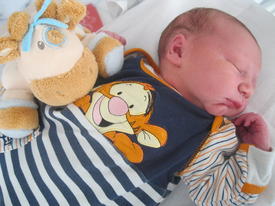Eating less than 1200 calories a day - Suggestions
Options

TanyaHelm
Posts: 1
My Dr told me to eat 900 calories a day (max) in order to lose weight. Everything I have read tells me that my body would go into starvation mode, therefore preventing me from losing weight. Any suggestions? I am 5'3 160lbs - goal to get down to 120/125. I am eating no more than 1200 a day currently and have lost 7lbs so far in 1.5 weeks.
0
Replies
-
That sounds crazy. You should be eating at least 1200 calories a day!!! Keep doing what you are doing!0
-
I cannot imagine a doctor telling someone to eat less than 900 calories?????
Ummm, eat lots of extra lean protein and veggies!!!! nothing else---take lots of vitamins cuz you're gonna need them.0 -
Yes it will. Unfortunately, medical school doesn't focus on nutrition. You might lose weight doing it his way but it will affect your health in the long run and you will lose more muscle mass than fat mass (the body tried to protect our fat reserves especially as they get to healthier levels).
A registered dietitian or nutritionist is better for discussing diet and nutrition. You have lost mostly water weight at this point. The loss will slow.
I love this site:
http://www.hussmanfitness.org/html/TPAdaptation.html (he seems to be pointing fingers at "no-carbers". This info applies to all).
Working With Your Body - The Basic Strategy
By John P. Hussman, Ph.D.
All rights reserved and actively enforced.
The goal of this site is to help you to transform your physique by walking you step-by-step through everything you need to know about exercise physiology and nutrition. I know that a lot of you have “tried everything,” and because there are so many approaches that have failed you, there's a real risk that you'll quit again and again if you don't see results immediately, or if you don't fully understand why your fitness program should work. Worse, there may be some missing pieces in your program, which could lead to slow progress even though you're hard at work. My hope is that this information will help you to stay on track - to turn effort into results - and to reach your goal.
Want to change your physique? Start by realizing that whatever shape you're in right now is your body's way of adapting to the lifestyle you're living. It's your body's attempt to survive. So the strategy is simple. We're going to give your body a very specific “environment” – a particular mix of activities, nutrition, and recovery – and your body is going to adapt by becoming leaner, stronger, and healthier.
Every change you throw at your body triggers a response. The problem with many diet and exercise programs is that they can accidentally encourage your body to defend fat, shed muscle, increase appetite and even lower its metabolism. The key to fast results is to know exactly which actions will cause your body to adapt by becoming fitter.
Maybe you've tried before to get in shape. But for some reason, you didn't get the results you wanted. If you're like I used to be, you've repeated that cycle year after year to no avail. Maybe you've failed so many times that you think of yourself as a “special case.” You've started to believe your entire metabolism consists of a little turtle on a treadmill. You wonder whether you've got the fat gene. You're convinced that no matter how hard you diet, your cells can still be seen eating Twinkies when viewed under a microscope.
Look. You're not a special case. Even if you had the fat gene (common among Pima Indians but rare otherwise), you'd only be burning 50-60 calories a day less than anybody else. Even if you've been diagnosed with a metabolic difficulty such as diabetes or hypothyroidism, you can still be successful with proper medical support. Most probably, other approaches failed you either because they were missing important pieces, focused on the wrong things, or produced results so slowly that you just gave up. What you need most is good information. You're in the right place.
The law of unintended consequences
Your body is an amazing feedback system aimed at balance and survival. Humans are at the top of the food chain because they are able to adapt to their environment. Every action produces a reaction. Every change in its environment triggers a survival response. It's important to keep that in mind when you plan your fitness program. If you treat your body as an enemy to be conquered, you'll produce unintended results.
For example, if you severely cut off the supply of food to your body, it will defend itself by slowing down its metabolism to survive starvation. The body will shed muscle mass the same way that you would throw cargo from a plane that was low on fuel, and it will reduce its thyroid activity to conserve energy. The body will also actually defend its fat stores. In anorexia, muscle loss can be so profound that fat as a percentage of body weight actually rises. Extreme carbohydrate restriction also causes muscle loss, dehydration, and slower metabolism, which is why even successful Atkins dieters can have a significant rebound in weight after they stop the diet (don't worry – the advice on this site will prevent that from happening).
As another example, if you put your body under stress through overexertion and lack of sleep, it will respond by slowing down, reducing muscle growth, and increasing your appetite for junk food, carbohydrates and fat. If you feed your body excessive amounts of sugar and quickly digested carbohydrates, and it will shut off its ability to burn fat until those sugars are taken out of the bloodstream.
This website will show you how to work with your body to quickly produce the changes you want. In order to do that, you need to take actions that push your body to adapt – to build strength, burn fat, and increase fitness. You need a training program, not an exercise routine. You need a nutrition plan, not a diet. You need a challenge, not a few good habits you usually try to follow except when you don't.
Setting the right goal
John Dewey once said that a problem well-stated is half-solved. If you want to reach your goal, you have to define it correctly. See, a lot of people say “I want to lose weight.” Well, if losing weight is your goal, go on a no-carb diet. You'll lose a lot of weight – some of it will be fat, a lot of it will be water, and a dangerous amount will be muscle tissue. You'll lose weight quickly, but you'll slow your metabolism and gain fat more quickly once you go off the diet. Trust me on this. I've been there, done that.
The problem is that you've set the wrong goal. If you want to look better, have more energy and enjoy better health, the goal is not simply to “lose weight.” The goal is to improve your fitness level and body composition. That means losing fat, improving your aerobic capacity, training your strength and defending your muscle tissue. You can't do that with a no-carb diet. You will do it using the approach you'll learn on this website. Trust me on this one too. I know what it's like to feel fat, tired and helplessly out of shape. The whole point of this site is to help others avoid that, by sharing lessons that I had to learn the hard way.
Ready to change?
Right this minute, your body is the way it is because it has adapted to the lifestyle you've thrown at it, in an attempt to survive. Ever seen the directory at the mall with the little red arrow that says “you are here”? Well, fitness is the same way. You are here. You can't start anywhere else. So be kind to yourself. Don't beat yourself up. Don't worry about how much there is to do. Change your self-talk from “My body is my enemy” to “My body is my partner.” Accept where you are right now as the starting point, and start moving.
Changing your body requires more than just “going on a diet” for a few weeks. If you want to change your body, you have to make some changes to your lifestyle (which requires some discipline, but isn't as hard as it sounds). If you create the right environment, your body will adapt to it by becoming leaner, stronger, and more energetic. You can do this.
Don't go below your BMR (the number you get from the calculator under Tools). This is the number your body requires just for systems and organs to function. And eat most if not all of exercise calories (keep your NET at or above 1200).
If and when you hit a plateau you will need to drop your weight loss goal down and this will up your calories. You don't want to drop below 1200.0 -
I am 5'4" and weighed 160 pounds on January 1st. I have followed MFP guidelines for one pound a week loss including eating back most of my exercise calories. I have lost 28 pounds and plan on losing about 5 or so more. I think I would have been miserable trying to do this on 900 calories and not stayed with it. Did you ask why so low?0
-
I want to say that eating only 900 calories a day is unhealthy. I'm confused as to why your Dr would recommend that. If you did it, you will probably lose weight, at first. Then when you eat regularly, you run the risk of gaining all the weight back.0
-
your doing great. My dietitian says the weight will come off slowly, Eat non starch vegetables and fiber, I am 55, 5'2 and am at 171, lost 4 lbs in 2 weeks. Keeps up the great job, your on your way. I was recommended no less than 1200 cal diet, so you don't burn muscle and don't gain it back. 900 doesn't sound healthy. Use the program to choose your level.0
-
If you're seeing success with your current habits, stay with them. 900 calories is very, very low. If you can lose weight at 1200, do it.0
-
Stay at the 1200 a day, some days if you go under 1200 that is ok, but don't try to go over or under too much.0
-
900?! :noway:0
-
to maintain your weight, multiply your current weight by 10
then to lose weight, subtract 500 from it and that would need to be your calorie intake for a 1 pound weightloss per week
i wouldn't go down to 900 calories a day because it seems that would be setting myself up for failure...i would feel hungry all the time and feel deprived.0 -
Ignore that doctor. Eat 1,200 a day. You're doing great already!0
-
To be honest Starvation mode is different for everyone - and if your doctor tells you 900 then most likely that is above the starvation mode for YOU as a person. (I've heard the average starvation mode kicks in 800cal or below).
It's really up to you! If you feel that your body is doing fine at 1200 - keep it up. And if you hit a plateau in the future maybe you'll end up trying 900 like the Dr. said Who knows!
Who knows!
Best of luck and grats on the weight loss so far!0 -
I am 5'3" also. My goal weight is 125. I have been doing 1200 calories give or take and have been losing at 1.5 pounds per week also. So I think 900 is way to low. I am diabetic and my dietitcian told me not to go under 1000 or above 1200.0
-
If I'm right about this, I think that the less you weigh, the less your calories should be in order to lose weight. Now, I only weighed 116lbs when I started MFP, and it suggested that I eat 1200 cal a day. I've been sticking to the 1200 cals a day and have lost about 7 lbs! My BF is 6'2 and weighed 330lbs. His calories were lowered to about 2800 and he has lost 30lbs already! I think if you stick to 1200 daily, you will find that you will lose the weight!0
-
A lot of it truly does depend on the person's individual metabolism. Not all sizes fit everyone. 1200 is a good rule for the majority of people, but for some that is too much. Personally, I don't lose on 1200 (even when it is the *right* 1200). I have to eat under 1,000 net to see any progress.
In actuality, many "doctor supervised" liquid diet programs are drastically less than 1200 a day....0 -
Is the dr going to monitor your blood work often to make sure that you aren't doing any damage while you do that? Do you have health concerns to merit a drastic calorie change like that? I can't imagine what it could be at weighing only 160 lbs. I think maybe you should get a second opinion. I have done what he is asking of you but it was medically supervised. I had to take a bunch of supplements and have blood testing every other week to make sure I wasn't doing any damage. I was also about 240lbs at the time had high blood pressure and was pre-diabetic. Even with that I wouldn't recommend it. I gained all the weight back and quick as soon as I started eating an average diet.0
-
You are taller than me, lighter than me, and eating FAR less than me.....I am still losing weight, and so are you, but only one of us is doing it healthfully and will see permanent results. I think you can do that math.My Dr told me to eat 900 calories a day (max) in order to lose weight. Everything I have read tells me that my body would go into starvation mode, therefore preventing me from losing weight. Any suggestions? I am 5'3 160lbs - goal to get down to 120/125. I am eating no more than 1200 a day currently and have lost 7lbs so far in 1.5 weeks.
The fact that you asked the question in the first place tells me you have a gut feeling.
You asked: "any suiggestions?" I say: get a new doctor.0 -
The URL, AKA The Caloric Intake Bible:
http://shouldieatmyexercisecalories.com
States that you should probably eat 0
0 -
A lot of it truly does depend on the person's individual metabolism. Not all sizes fit everyone. 1200 is a good rule for the majority of people, but for some that is too much. Personally, I don't lose on 1200 (even when it is the *right* 1200). I have to eat under 1,000 net to see any progress.
In actuality, many "doctor supervised" liquid diet programs are drastically less than 1200 a day....
You are losing weight but you are losing more muscle mass than fat mass. All this will do is slow your metabolism more. And you can't survive on less than 1200. It will start affecting your health, your systems and your organs.0 -
I would definitely say that 900 calories a day is very unhealthy. My wife is getting ready to undergo lap-band surgery and she has to cut back to 800 calories a day for the 2 weeks before the surgery. This is only because it is necessary to do before the surgery.0
-
I think no one should have calorie consumption less than their BMR (Basal Metabolic Rate), since it's the minimum energy your body need to keep the basic physical function, and 900 kcal/per day is much less than the average. You can estimate your own BMR with calculator such as the one in TOOLS section, or even you know your body fat percentage, try Katch-McArdle Formula:370 + (21.6 X lean body mass in kg) OR 370 + (9.8 X lean body mass in lbs) (lean body mass=body mass X (1-body fat %)). Try discuss this with your doctor, it's really not proper to have such a low calorie intake :~0
-
900...seems a bit low!
I would at least eat 1200...you will be super tired especially if you are working out....0 -
Keep with what your're doing, hun. It's working. And I believe from what I've also read that the less you eat, the more your body "holds on" to what it has. If you eat, it gives it fuel to burn calories. 1200 seems like a good place for you. No more than that I wouldn't think.:explode:0
-
Like another post said, if 1200 is working for you, stick to it, or you could simply try halving the deficit. Instead of just dieting, try pairing with exercise so that your metabolism will increase. I've read that for a 500 calorie deficit diet, it's not a bad idea to half cut 250 calories from food and exercise the other 250. Walking is a wonderful low impact exercise. Look into buying a pedometer for 10,000 steps a day.
PS - Try and eat, even if it's a snack every 2-3 hours! Too little food or waiting until you're hungry to eat will trigger cortisol (the stress hormone) and conserve fat.
http://www.medicinenet.com/script/main/art.asp?articlekey=53304
Also, doctors are people, too. They may not always give perfect advice. Research and use your own wise judgement.0 -
I suggest you get a new doctor. I am shocked at such terrible advice! All research points to the fact you need at LEAST 1200 calories a day to avoid slowing down your metabolism and kicking your body into "starvation mode" meaning it will start to save every calorie you give it so you can survive the "famine" of 2011!
I think you should calculate your RMR using the "tools" on this website or do what I did and go get it tested so you know exactly how many calories you need to maintain your weight and then from there, you can calculate how many calories you need to lose weight based on your activity level and exercise.
Good luck.0 -
If I went by this, I would have to eat 720 calories a day to lose, 1220 to maintain.to maintain your weight, multiply your current weight by 10
then to lose weight, subtract 500 from it and that would need to be your calorie intake for a 1 pound weightloss per week
i wouldn't go down to 900 calories a day because it seems that would be setting myself up for failure...i would feel hungry all the time and feel deprived.0 -
Whether or not you can starve yourself by eating less than 1200 calories a day, I think also depends on how mobile you are. Take me, for example. I ambulate by using a motorized wheelchair. So if moving my joystick with my fingers and hand all day burns as much as someone who walks or even pushes themselves around in a manual wheelchair (which my goal is to get back into a manual wheelchair), then someone needs to alert Jane Fonda lol.
I've been tracking what I eat on the ipad app for about six weeks now and I've noticed that if I eat 1200 calories or more (I've seldom done that), I feel like I'm ready to burst. On the flip side, if I eat less than 1200, I feel satisfied and not hungry.
I'm already losing some inches from my waist and I've recently noticed body parts are getting smaller and thinner. Idk how much weight i've lost since I'm unable to weigh myself, but I know I'm losing weight.0 -
1200 cals a day sounds like a reasonably serious goal. Besides that losing more than than rate creates more problems like folds of loose skin that hasn't or won't shrink.0
-
Suggestion: don't.0
-
my dr told me, when i told her i was concerned that i was not losing at 1400, that i could drop to 1200, but absolutely no further. she said women require atleast 1200 cals a day, and men require atlest 1500 cals a day. she also made it clear that this was short term, to lose the majority of my weight, and then i needed to work my way back up to a more realistic calorie goal for maintaining. i cant imagine a dr telling someone to eat less than 900... that seems scary!0
This discussion has been closed.
Categories
- All Categories
- 1.4M Health, Wellness and Goals
- 396.8K Introduce Yourself
- 44.2K Getting Started
- 260.9K Health and Weight Loss
- 176.3K Food and Nutrition
- 47.6K Recipes
- 232.8K Fitness and Exercise
- 452 Sleep, Mindfulness and Overall Wellness
- 6.5K Goal: Maintaining Weight
- 8.7K Goal: Gaining Weight and Body Building
- 153.3K Motivation and Support
- 8.3K Challenges
- 1.3K Debate Club
- 96.5K Chit-Chat
- 2.6K Fun and Games
- 4.5K MyFitnessPal Information
- 16 News and Announcements
- 18 MyFitnessPal Academy
- 1.4K Feature Suggestions and Ideas
- 3.1K MyFitnessPal Tech Support Questions
























